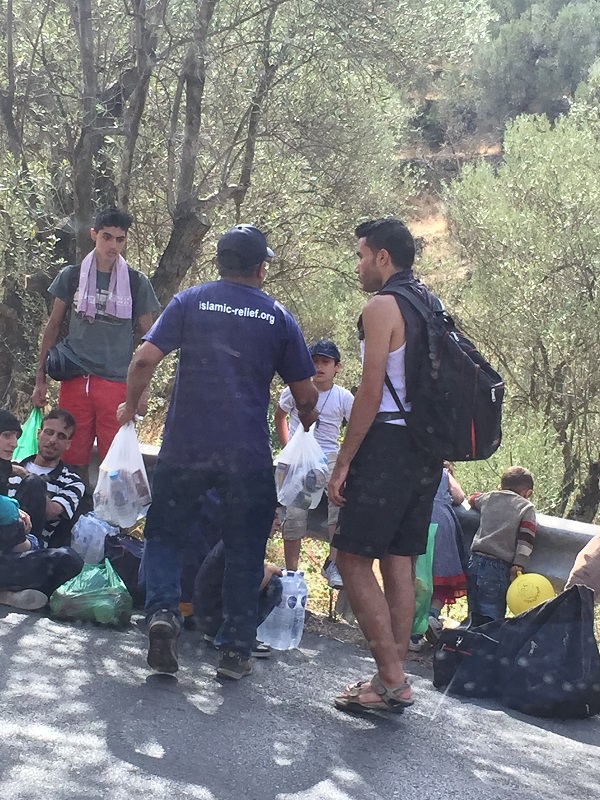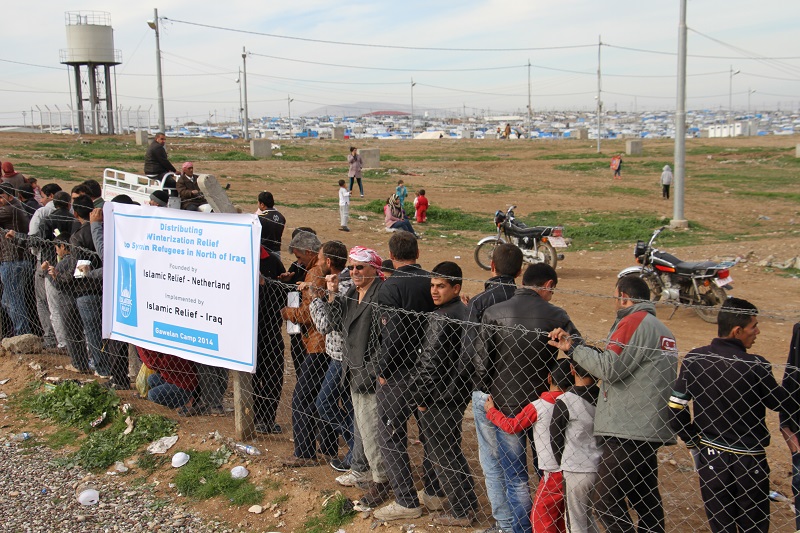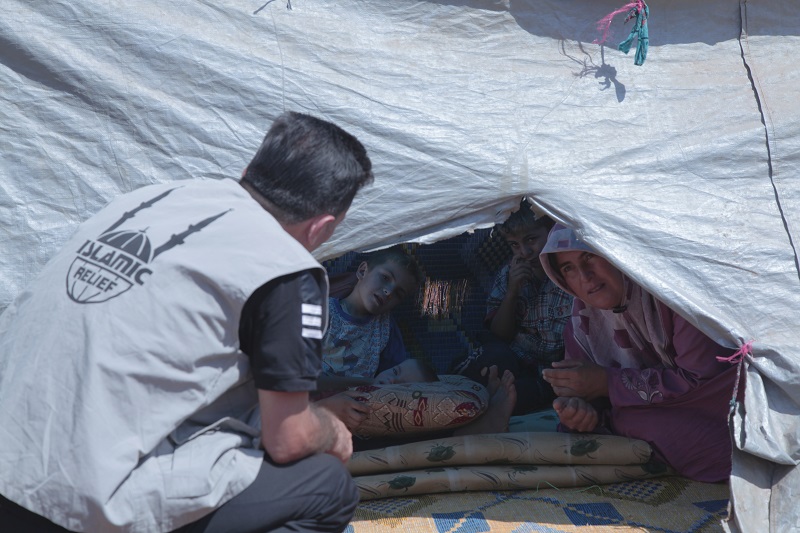As EU member states grapple with an escalating refugee crisis, Islamic Relief calls for world leaders to commit to action in Europe and to tackle the roots of the crisis in the Middle East.
Some 367,000 people have travelled by sea to Europe this year, largely escaping conflict and insecurity in the Middle East. Years of violent conflict in Syria and woefully underfunded humanitarian programmes have created dire conditions for vulnerable people. For example, the UNHCR’s Syria operation has only 37 per cent of the funding needed this year, and the monthly food allowance for Syrian refugees in Jordan and Lebanon is reportedly just US $13.50.

Italy has received over 121,000 new arrivals this year, whilst 244,800 refugees have made it to Greece – where, according to the UNHCR, about 90 per cent have travelled from Turkey, which in 2015 has just 21 per cent of the funding necessary to meet the needs of 1.9 million Syrian refugees within its borders.
Whilst some progress has been made recently in responding to the catastrophic crisis, there is currently no unified EU response. Countries hosting refugees – such as Greece, Hungary, Serbia and Macedonia – have not yet demonstrated the financial or organisational will to respond adequately to one of the worst refugee crises of our generation.
Islamic Relief has been assisting vulnerable people since the onset of Syrian conflict in 2011. Working deep inside Syria and with programmes supporting refugees in Iraq, Jordan, Lebanon, and Turkey, we have so far helped over seven million Syrians since the fighting began, including 1.6 million people this year. We are also on the ground in Greece, assisting some of the thousands of refugees arriving from Turkey, as well as in countries such as Italy and Germany.
Our call for action
We call upon the international community to commit to three areas of action to end the suffering:
Action area one
As a humanitarian and development charity inspired by Islam, we believe all human beings have God-given dignity. It is our duty to challenge injustice that undermines that dignity, and to act to preserve life. Right now, hundreds of thousands of people are on the move in search of safety – often facing dangerous journeys and appalling conditions.
On the Greek island of Lesvos, for example, our aid workers report that many refugees, including women, children and older people are living in hugely overcrowded and ill equipped camps. The camps lack even basic standards of water and sanitation, and food distributions are inadequate to cope with growing needs. Others are sleeping on the streets or in makeshift shelters awaiting decisions that will allow them to continue onward in their quest for safety. Child protection interventions and much needed coordination of humanitarian intervention are also starkly absent.
This is unacceptable. The member states of the EU are some of the richest countries in the world. They have the resources and political capital to deal with the situation. We call on them to properly fund and coordinate the humanitarian response. We call on them to protect human life and dignity.
Action area two

One of the main factors driving the exodus of refugees to Europe is a lack of resettlement from Middle Eastern host countries to third party countries. There are mechanisms in place to enable the most vulnerable refugees to be resettled in countries outside of the region. However, just 21,154 Syrians were resettled in other safe havens last year. This is far less than what is required, and has caused many refugees to take matters into their own hands – forcing them to undertake perilous and gruelling journeys because no safe and legal routes are available to them. More than 2,850 people have lost their lives this year trying to reach Europe.
Recent pledges from EU members to take more refugees are welcome, but much more is needed to protect lives. An EU wide take-up of the UNHCR’s resettlement scheme is essential. The lengthy and bureaucratic process must also be significantly speeded-up. For example, in 2013, the UK offered places for 500 Syrians, but so far only 241 have been resettled. EU members must support the programme, which prioritises the very vulnerable who wish to be resettled in a third country – including families, single women at risk of sexual and gender based violence, unaccompanied minors, disabled individuals and older people.
Action area three
The world must also recognise that the situation in Europe is an extension of the Syria emergency, in which conflict continues unabated. As larger numbers of increasingly desperate refugees are entering Europe, it should now be clearer than ever that the devastating war in Syria cannot be allowed to continue.

About 12.2 million people inside the war-torn country are thought to be in need of humanitarian aid. Many are living in besieged or hard-to-reach areas and some 7.6 million people are internally displaced. Over four million people are registered refugees in neighbouring countries, which are struggling to continue to cope with rising numbers of vulnerable people seeking safety. The mass movement into Europe is driven in part by the lack of humanitarian funding for countries such as Jordan, Lebanon, Turkey and Iraq – which also faces devastating conflict within its own borders. Humanitarian organisations such as Islamic Relief are critical to the provision of essential relief and support to vulnerable people in these countries.
As well as better resourced humanitarian interventions, the people of Syria also urgently need safe havens and humanitarian corridors. We also call on world leaders to urgently progress political solutions to end the conflict and enable the people of Syria to live in safety in their country.
Islamic Relief is currently appealing for support for its emergency response to the crisis in the Mediterranean crisis as well as support for its lifesaving programmes in Syria and nearby. Help us ease the suffering: donate now.
Donate









